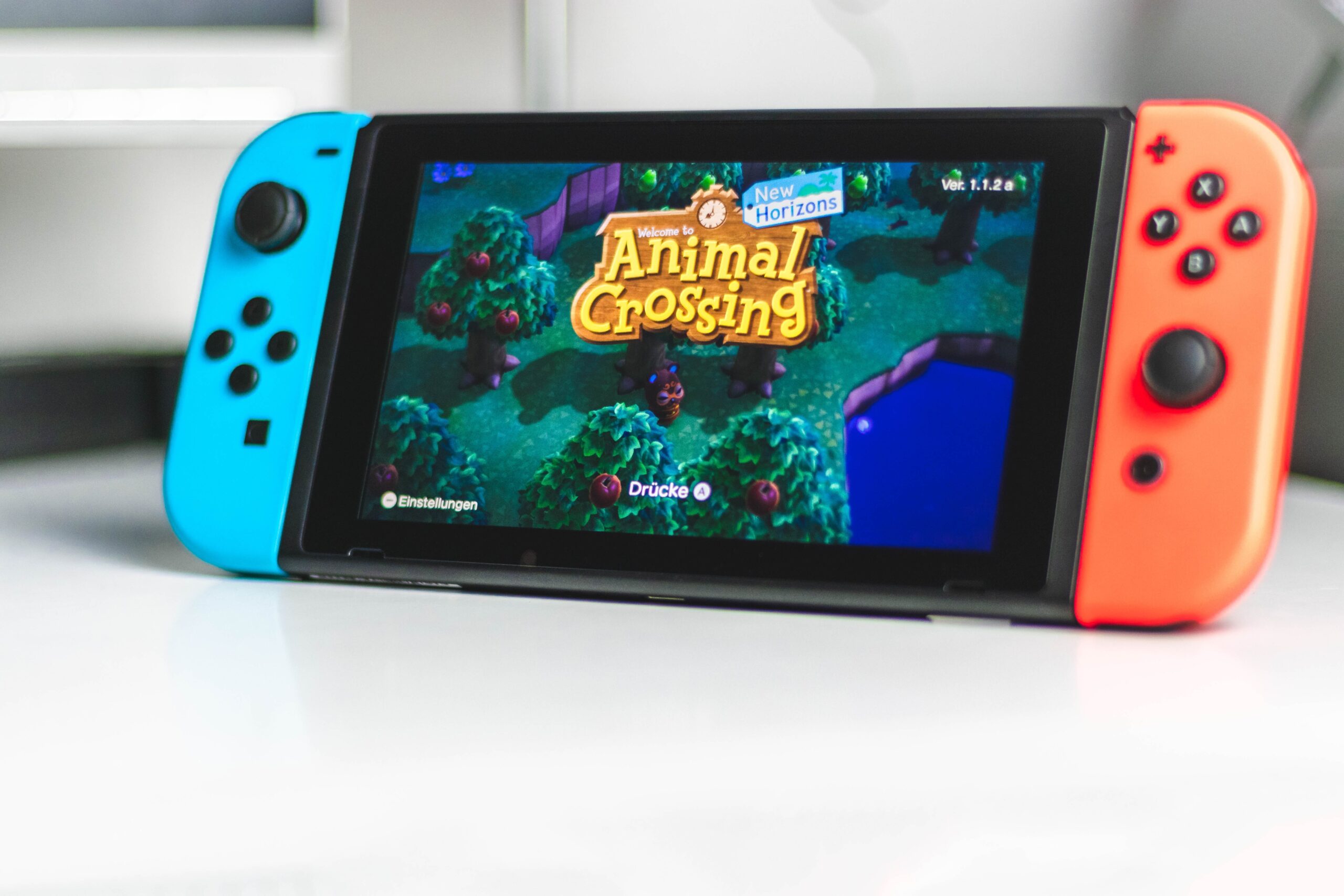
Animal Crossing
Photo by Sara Kurfeß on Unsplash
Animal Crossing isn’t a game people play for a few hours or days and then set aside; it’s a game that people spend months or even years on, tweaking flower beds, rearranging furniture, and doing everything in their power to get Bitty to move out of town.
But when so many people dedicate so much time to a game that essentially boils down to a “living-in-a-town” simulator, it begs the question: What do people get from Animal Crossing that they don’t get in the real world?
In the world of Animal Crossing, everyone just kind of exists. The society is clearly not lacking for basic living essentials. Everyone has food and clothes and the means to create more of it whenever necessary. When you want fruit, you go get fruit from a tree. When you want fish, you catch it in the river. Everyone has a shovel for digging, a rod for fishing, and an axe for chopping trees. The world’s bounty is at the characters’ fingertips, and they realize that for a community to function, they must all strive together for the communal good. Animal Crossing offers more than just simple video game escapism; it’s a blueprint for a functional socialist utopia.
Most townsfolk spend their days just like the main character does: hanging out, tending to their flowers, and talking to their neighbors. With their most basic needs presumably taken care of through the efforts of the larger community, they are free to pursue their interests and creative endeavors. Some, like Goose the jock chicken, provide communal services like offering fitness advice to help keep everyone in great shape. Others, like Bob the lazy cat, are fundamentally incapable of working hard, and that’s okay, too. Everyone is free to spend their time as they wish.
Of course, the system allows those with extra motivation to work for monetary gain. If the Able sisters want to run a textile business, more power to them. If Kapp’n wants to charge villagers for the opportunity to go out on his boat, he’s more than welcome to. Just because bartering is the primary exchange method in society doesn’t mean coin can’t exist to handle transactions that go above and beyond the essentials. The community doesn’t need to share everything––just the basics to allow every villager food, clothes, and a roof over their heads.
Government exists within Animal Crossing, too, but it works towards the greater good of the community. For instance, there’s a police station, but its primary directive is to operate the lost and found. As far as we’ve seen, Copper the police dog holds no punitive power. Similarly, the town has “laws,” such as zoning restrictions for where you can build your house, but they’re almost entirely practical, designed to prevent your home from abutting the local parade grounds or opening your door into the river. The Animal Crossing political bodies truly function by and for the animals they govern.
But what discussion of Animal Crossing politics could truly be complete without analyzing Tom Nook, the real estating/shopkeeping/money lending tanuki who serves as the player character’s primary benefactor in every game? Isn’t Tom Nook the very definition of capitalist greed, trapping the player in an endless cycle of debt and home improvements? Well, not really. Tom Nook has no power, whatsoever. There’s no government backing him, no corporatist structure for him to thrive off.
Tom Nook gives you a house, upfront, for nothing. Sure, he asks you to pay him back, but he can’t enforce those debts outside of refusing to build you a bigger house until you do. There’s no time frame for his loan and no interest. In other words, Tom Nook literally just lends you money for nonessential home improvements, and he takes 100% of the risk on his own shoulders knowing full well that you might never pay him back. He’s the wealthiest animal in the entire community, and he spends all his time and resources donating those funds in exchange for little-to-no personal gain. If anything, Tom Nook is a shining beacon of the core socialist structure of Animal Crossing‘s society.
In essence, Animal Crossing paints a picture of a friendly, functional society wherein different species co-exist peacefully with their every basic need provided for in full. The government is run by and for the community, ensuring that the needs of the townsfolk are properly met without ever overstepping or interfering with their private lives. From there, animals have the freedom to pursue their interests, provide communal services, or consolidate wealth. Those who do consolidate wealth tend to invest much of that profit back into the community. It’s a system that works and everyone is happy—except Bitty, because she sucks and needs to move.
In the real world, we’re stuck in a capitalist nightmare, riddled with government-enforced debt, corrupt politicians, and corporations as people. White supremacism is on the rise. In Animal Crossing, we never need to worry about having fresh food, clean water, or a roof over our heads. A duck and a wolf can be next-door neighbors and everything is totally fine. Both of these options are possible in real life, too (at least if we substitute the duck and wolf for people from different walks of life). Which do you prefer?
- Raymond the Smug Cat and the Dark Underbelly of Animal Crossing – Popdust ›
- AOC Is Playing Animal Crossing & Responded to a Trump Troll – Popdust ›
- Nintendo Switch Games to Play in Quarantine While You Wait for the Next Day in “Animal Crossing” – Popdust ›
- The 7 Fastest Ways to Earn Bells on “Animal Crossing: New Horizons” – Popdust ›
- Leif and Redd Bring High Culture to Animal Crossing: New Horizons – Popdust ›
- Is It Possible to Defeat Tom Nook in Animal Crossing? – Popdust ›
- The Worst Animal Crossing Villagers, Ranked – Popdust ›
- Did Nintendo Create COVID-19 to Make “Animal Crossing: New Horizons” the New Way to Socialize? – Popdust ›
- The official home for Animal Crossing – Home ›
- The Animal Crossing You Probably Never Played ›
- Animal Crossing on Nintendo Switch: release date, news and … ›
- Road to Socialism USA ›
- National Socialist Movement | Southern Poverty Law Center ›
- Kirby Star Allies is a Triumph of Socialism – Geek.com ›
- Is Stardew Valley Trying to Turn Us into Communists? :: Games … ›
- Isabelle brings Socialism to the Village (Animal Crossing Parody … ›
- Isabelle Has Some Revolutionary Ideas For Running Your Animal … ›













